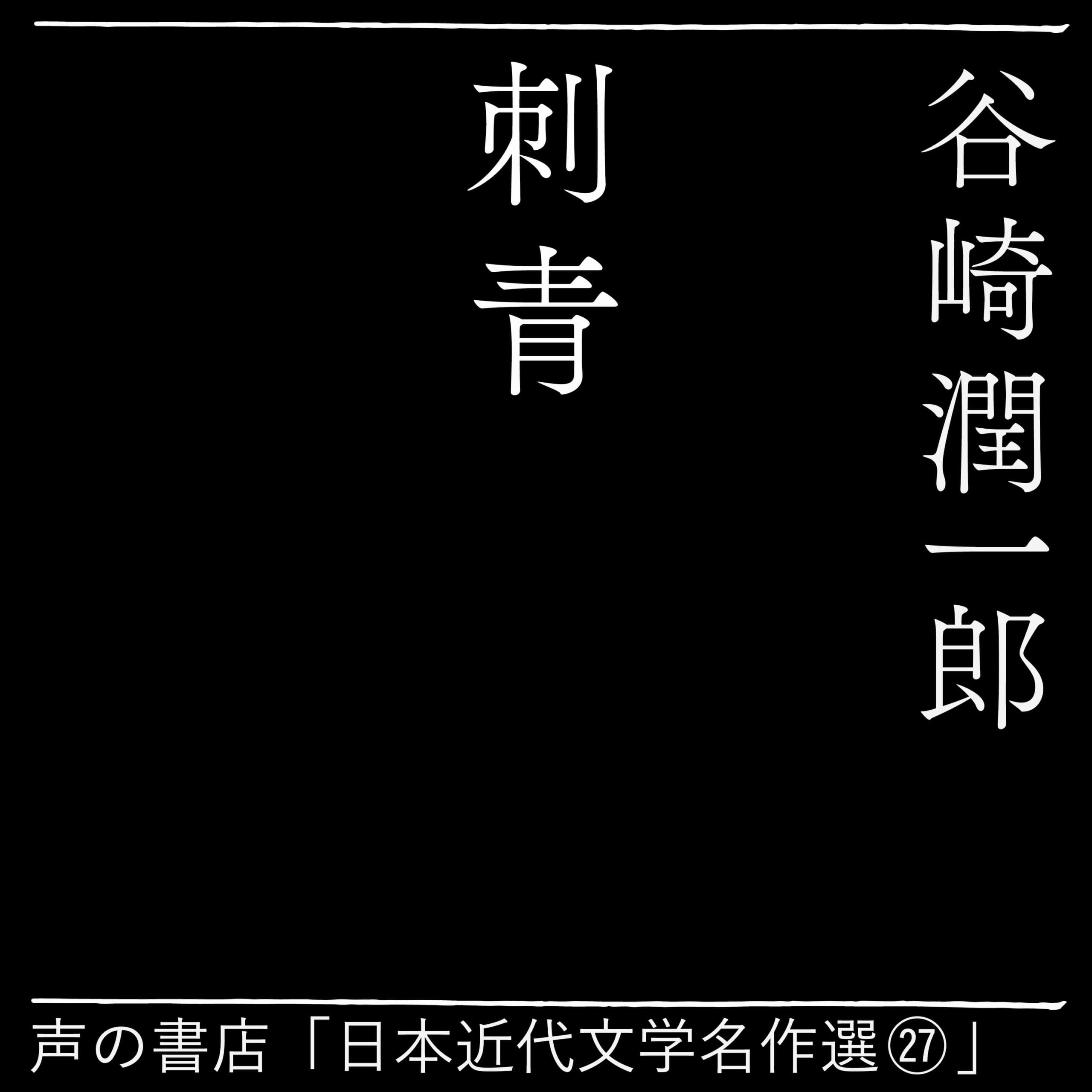
Shisei(The Tattooer)
【Masterpieces of Modern Japanese Literature㉗】
By Jun’ichirō Tanizaki
Narrated by Nana Nagao
Buy from Retailers
A short story by Jun’ichirō Tanizaki
“It was a time when people still possessed the precious virtue of ‘foolishness,’ and the world did not yet grind against itself as it does now. In those days, the faces of lords and young masters remained unclouded, and the laughter of palace maids and courtesans never ceased. Professions like the loquacious tea priests and shameless clowns could exist and thrive, for society was relaxed. Female characters like Onna Jūkurō, Onna Jiraiya, and Onna Narukami—whether in plays or popular literature—were always portrayed as beautiful and strong, while the ugly were weak. In an era where everyone made an effort to be beautiful, the result was that even those born with natural beauty ended up having color painted into their bodies.”
Author : Jun’ichirō Tanizaki
Narrator : Nana Nagao
Produced by:Koé no Shoten
Special Thanks:Shigoto, Inc.
Listening Length:
Release Date:2025/4/1
*For how to listen, pricing, purchase methods, payment options, and more, please check each distribution site.
ABOUT THE AUTHOR
1886 – 1965
Born in Nihonbashi, Tokyo, he entered the University of Tokyo’s Department of Japanese Literature but left before graduating. While still a student, he co-founded the literary magazine Shinshichō and published works such as the play Tanjō and the short story Shisei, which earned high praise from Nagai Kafū and marked his debut as a promising new writer. Following the Great Kantō Earthquake, he moved to the Kansai region and, in 1924, published Chijin no Ai(“Naomi”). In 1943, he began serializing Sasameyuki(“The Makioka Sisters”)in Chūō Kōron, but the military authorities censored the work. Despite this, he continued writing it in secret and published it after the war. While depicting an aesthetic and refined world, he also explored traditional Japanese beauty in works such as Manji(“Quicksand”), Tade kuu mushi (“Some Prefer Nettles”), Shunkinshō (“A Portrait of Shunkin”), In’ei Raisan (“In Praise of Shadows”), and Kagi(“The Key”).
